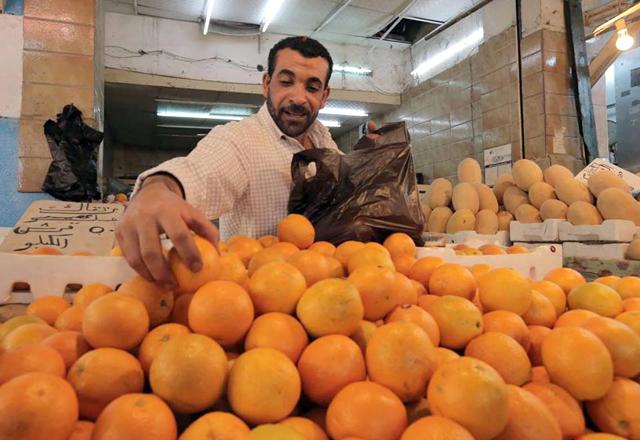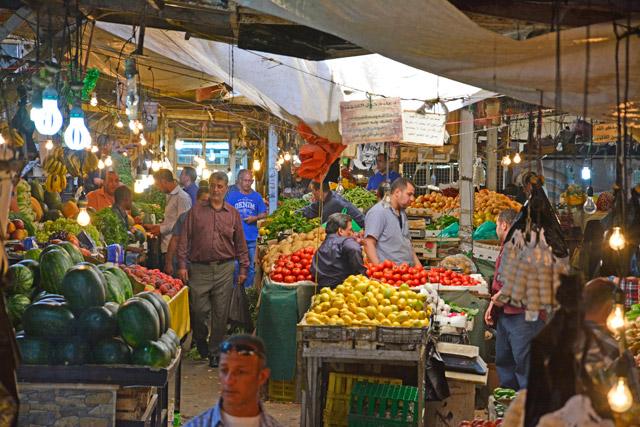You are here
‘Geothermal food drying economically feasible for Jordan’
By Hana Namrouqa - Apr 15,2014 - Last updated at Apr 15,2014
AMMAN — Food drying using geothermal energy holds promise for farmers, exporters, consumers and the Kingdom’s economy, according to a feasibility study released on Tuesday.
In addition, the process can enhance livelihoods, reduce spoilage and improve the country’s trade balance, the study indicated, proposing the construction of a pilot facility in one of the country’s geothermal hotspots with an annual capacity of 72,000 kilogrammes of dried produce, particularly tomatoes and peaches.
A 3,000-square-metre facility would cost JD770,000 with a simple payback period of 4.5 years, according to the study.
“Jordan’s resilience in the future is dependent on energy and export diversification. Geothermal food drying offers local and international stakeholders a chance to advance both,” said the study, which was conducted by a group of master’s students at Michigan University in cooperation with the Jordan Exporters and Producers Association for Fruits and Vegetables (JEPA), and UNDP.
Jordan’s agriculture industry is far more developed than its food processing sector, and agricultural produce often exceeds local demand, thus causing prices to crash, damaging farmers’ livelihoods and leading to the spoilage of produce, the study indicated.
It proposed that investors in the sector can wait for prices to be at their lowest before they buy the produce for drying.
“Europe is a major importer of both dried fruits and dried vegetables… Middle Eastern and Gulf countries are importing increasing amounts of dried fruits and vegetables,” the study noted.
According to figures provided by the study, the value of dried vegetable imports totalled $2.4 billion in 2012 and $2.1 million for dried fruits.
The value of regional dried vegetable imports the same year amounted to $38 million and $83 million for dried fruits.
Fruits and vegetables that are dried using geothermal energy make high-quality ingredients and snacks, as they have no added preservatives, and the hygienic process uses clean and renewable energy, according to the study.
It pointed out that Jordan is a hotbed of geothermal anomalies, with some dry wells drilled for oil and gas exploration in the Azraq Basin and Risha, giving down-hole temperatures that exceed 140°C.
During the launch of the study’s results, JEPA President Zuhair Jweihan said geothermal dehydration technologies help maintain the nutrition value of agricultural products and their quality while fetching good returns for producers in both local and export markets.
“Since Jordan has been blessed by the availability of huge, but so far underused, geothermal resources, we have the ambition of finding ways to use such resources in a way that will help reduce our dependence on traditional sources of energy,” Jweihan noted.
Meanwhile, Taysir Ghanem, a senior regional adviser at the Istanbul International Centre for Private Sector in Development, said the study seeks to motivate policy makers to consider geothermal energy as a renewable energy resource.
Around 17.7 per cent of electricity in Kenya is generated via geothermal power, Ghanem noted, highlighting that although Jordan is a more economically developed nation, this energy source is still untapped.
He underscored that Jordan is situated along the Great Rift Valley, which makes it abundant with geothermal energy sources.
Related Articles
AMMAN — The Jordan Exporters and Producers Association for Fruits and Vegetables (JEPA) on Tuesday signed a memorandum of understanding (MoU
AMMAN — Jordanian exporters and producers of fruits and vegetables will hold exhibits and enrol in training programmes and study tours to hi
AMMAN — The Jordan Exporters and Producers Association for Fruit and Vegetables (JEPA) participated in Qatar’s 7th International Agricultura

















